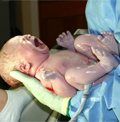 As part of plans to eliminate the disease in Europe, health officials in Europe are encouraging people to ensure they are up to date with their vaccines. Rubella is a vaccine-preventable illnesses included in the routine immunisation schedule of most countries.
As part of plans to eliminate the disease in Europe, health officials in Europe are encouraging people to ensure they are up to date with their vaccines. Rubella is a vaccine-preventable illnesses included in the routine immunisation schedule of most countries.
If you’re in Europe, you can check your vaccine schedule here or ask your health professional for advice.
You could have rubella and not even know it.
Symptoms are often mild, and up to 50% of infections may not present symptoms, according to a Fact Sheet published by the European Centre for Disease Prevention and Control (ECDC).
Rubella – sometimes called German measles – is usually a mild childhood disease, but it can cause serious birth defects if pregnant women are infected.
In addition to increasing the risk of miscarriage or still birth, infection with rubella during early pregnancy can result in Congenital Rubella Syndrome (CRS), in which the normal development of several of the baby’s organs is disrupted.
The result can be anything from deafness and cataracts to heart problems and mental retardation.
in the US, Cuba and some Scandinavian countries but remains a concern elsewhere in Europe. Efforts to eliminate the disease by 2015 appear unlikely to succeed and a new target date is expected to be announced by the WHO.




